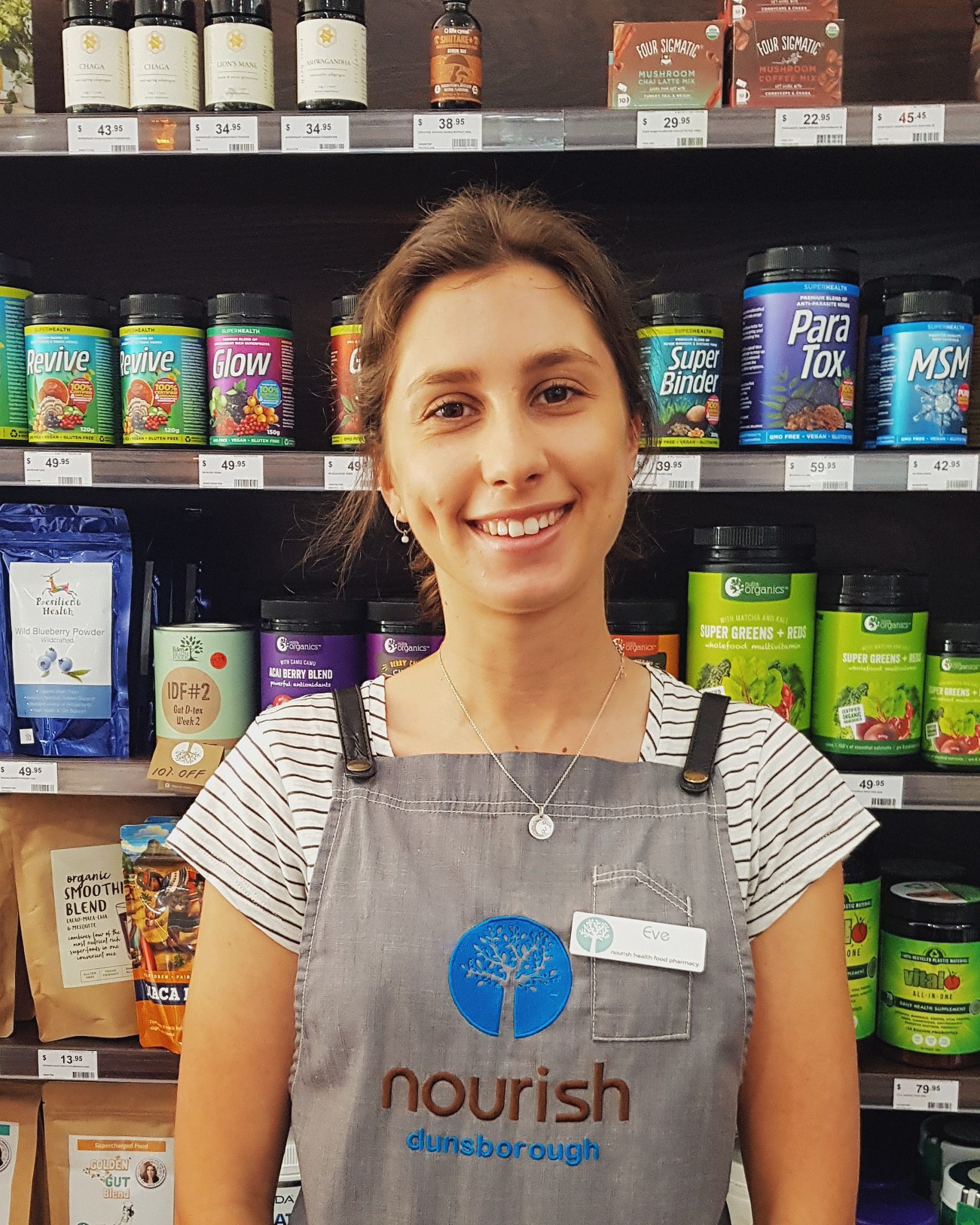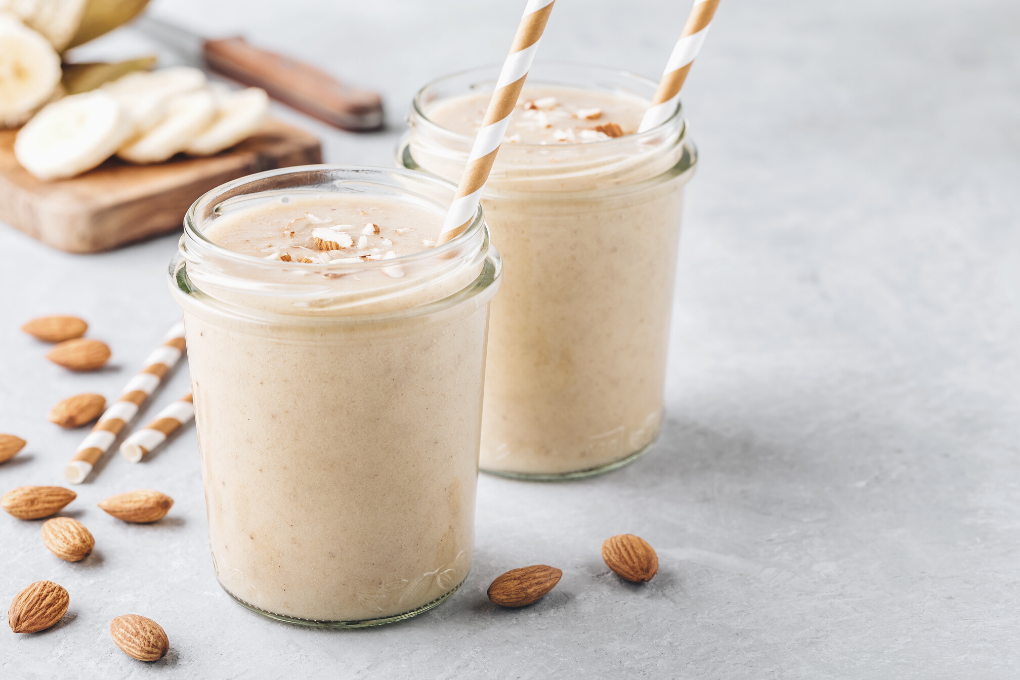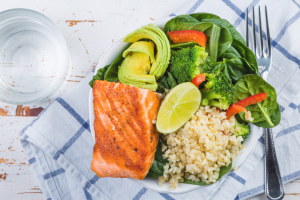Nutrition, Gut Health
Whey versus plant protein powders – which is best?
At Nourish we often get asked which protein powder we think is the best. This blog will dive a little deeper into the types of protein powders available and what to look for in a product.

 Recent studies are now indicating that it is important to spread your protein intake throughout the entire day rather than in one sitting, to get the best results for muscle anabolism. Studies have shown increased muscle gains in individuals that consumed 20 grams of protein pre- and post-workout.
This is in comparison to the individuals who consumed the same amount but in the morning and evening. Individuals who are aiming to building lean muscle mass could benefit from the slightly higher levels of protein and leucine and lower calories in whey protein.
So overall there is no standout winner, supplementation is highly dependent on personal preference and goals. It is also important to remember that supplements and protein powders should not replace a balanced diet. If you need more guidance to decide what is best for you, come in and have a chat with the staff at Nourish who are happy to point you in the right direction.
Recent studies are now indicating that it is important to spread your protein intake throughout the entire day rather than in one sitting, to get the best results for muscle anabolism. Studies have shown increased muscle gains in individuals that consumed 20 grams of protein pre- and post-workout.
This is in comparison to the individuals who consumed the same amount but in the morning and evening. Individuals who are aiming to building lean muscle mass could benefit from the slightly higher levels of protein and leucine and lower calories in whey protein.
So overall there is no standout winner, supplementation is highly dependent on personal preference and goals. It is also important to remember that supplements and protein powders should not replace a balanced diet. If you need more guidance to decide what is best for you, come in and have a chat with the staff at Nourish who are happy to point you in the right direction.

Eve Bishop
This blog post was written by Eve Bishop, Nutritionist at Nourish Health
We’ve all heard of protein, but what does it actually do?
Protein is a macronutrient that is essential for many functions in the body, particularly assisting with metabolic processes, growth, and repair of body tissues. There is no exact amount that everyone should be consuming, as intakes can vary massively based on factors such as age, gender, and physical activity level. As a general guide, someone with a light physical activity level should aim for 1-1.5g of protein per kilogram of body weight. For example, if someone weighed 60kg they would require 60-90g of protein per day. Most of us can reach this amount if we are eating a balanced diet, so when are protein powders required? Protein powders can be a convenient way to boost protein consumption if you are someone who struggles to meet your recommended intakes. People who have high physical activity levels require higher levels of protein which may not be possible to consume through diet alone. Other individuals may struggle to find time to make a nourishing meal with sufficient protein levels, so protein powders are a convenient way to assist with this. It is important to note that more protein is not necessarily always better. Protein cannot be stored in large amounts in the body, so high intakes can cause stress on the kidneys and digestive system.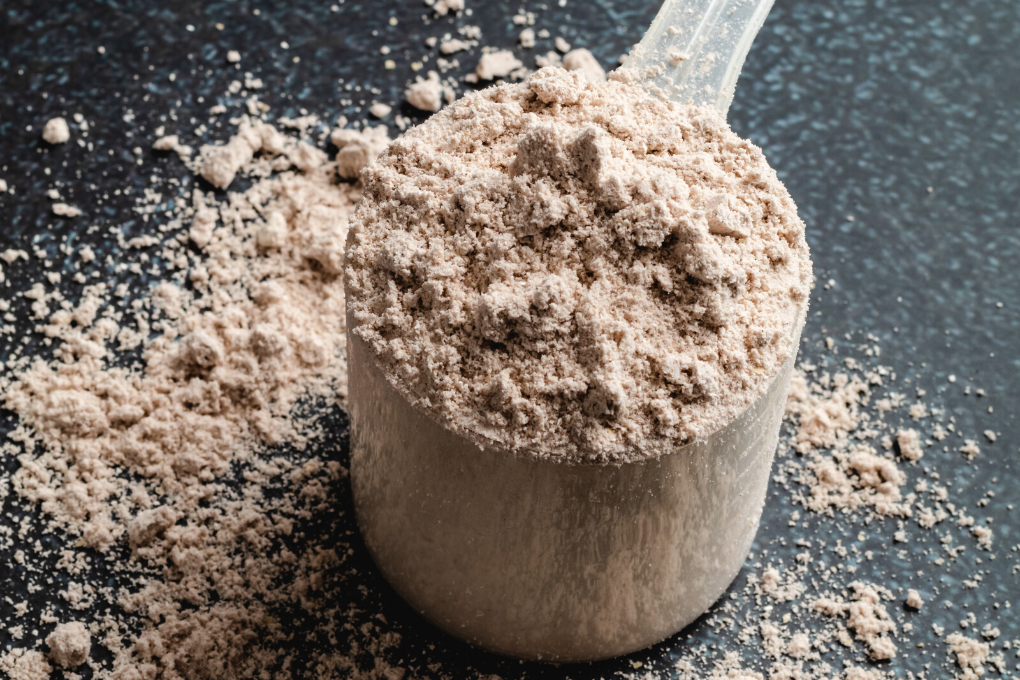
What protein powders are available?
There are two types of protein powders we tend to see and they are Whey-based and Plant-based. Whey is one of two proteins found in dairy milk. In the process of making cheese, whey separates from the mixture and is dried into a powder. There are two main types of whey protein available: whey protein concentrate and whey protein isolate. This basically refers to the amount of processing that is involved. Whey isolate is more processed and refined making it higher in protein but lower in fat and carbohydrates, therefore also containing less lactose (a sugar found in dairy). Interestingly, the lactose content in both forms of whey protein is likely to be low enough for most lactose intolerant individuals to use without adverse reactions. Plant proteins can come from a variety of plants, with brown rice, pea, soy, and hemp proteins being the main ones used. These are a great alternative for people following a plant-based diet, wanting to be more environmentally friendly, or who can’t tolerate whey protein. Vegan protein powders also tend to be richer in vitamins and minerals such as iron, zinc, magnesium, and fibre as they are made from foods which contain these nutrients. If you are concerned you might not be reaching your recommended intakes for these nutrients, then a plant protein powder might be more beneficial for you to boost your intake. Like all foods, it is important to check the ingredients list as it is not uncommon for companies to add unnecessary sweeteners, additives and hidden ingredients which can cause gastrointestinal upset in some people.So which type is best?
Well, this firstly depends on personal factors such as food intolerances and preferences, but there are a few things to look out for to determine which is best for your individualised goals. Whey protein, as with any animal product, is known as a complete protein because it contains all 9 essential amino acids that the body cannot produce itself, so it is crucial that we get these from the diet. We want to make sure that any protein powder contains these essential amino acids to ensure we are getting the most bang for our buck. Most plant foods do not contain all the 9 essential amino acids and therefore manufacturers will generally combine 2 or 3 different plants in one product to ensure all of these are included. A particular amino acid of interest is leucine, a Branch Chain Amino Acid important for muscle anabolism (building). It is recommended to have a good dose of this after a high intensity or resistance training workout, which is often easier to meet with a protein powder. Most plant proteins do not contain high levels of leucine; therefore, whey has been found to stimulate muscle synthesis at higher rates than plant proteins.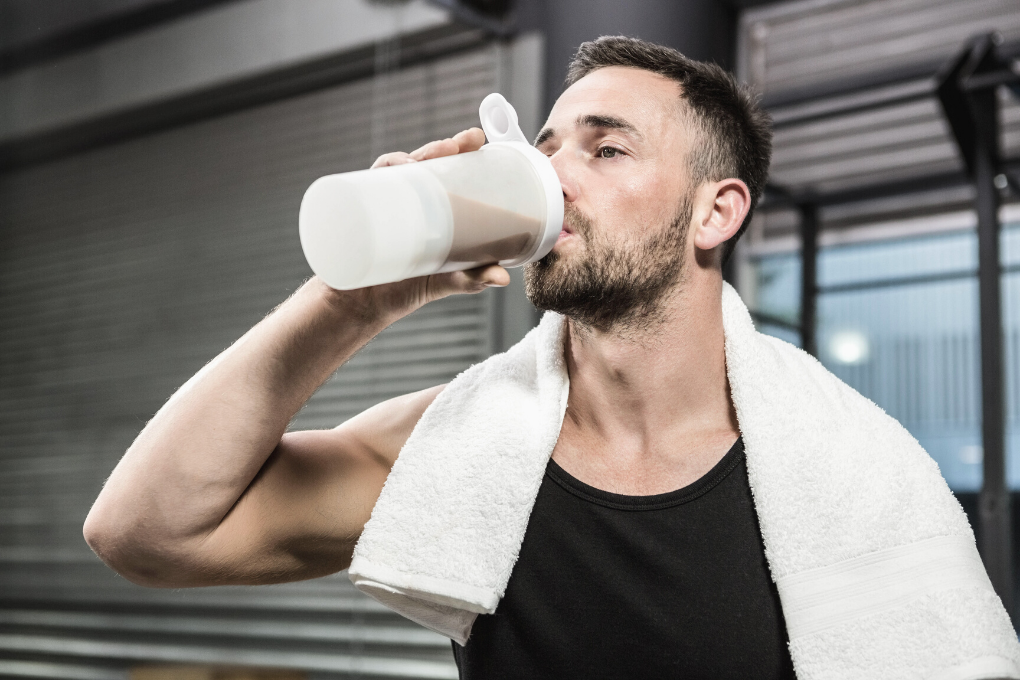 Recent studies are now indicating that it is important to spread your protein intake throughout the entire day rather than in one sitting, to get the best results for muscle anabolism. Studies have shown increased muscle gains in individuals that consumed 20 grams of protein pre- and post-workout.
This is in comparison to the individuals who consumed the same amount but in the morning and evening. Individuals who are aiming to building lean muscle mass could benefit from the slightly higher levels of protein and leucine and lower calories in whey protein.
So overall there is no standout winner, supplementation is highly dependent on personal preference and goals. It is also important to remember that supplements and protein powders should not replace a balanced diet. If you need more guidance to decide what is best for you, come in and have a chat with the staff at Nourish who are happy to point you in the right direction.
Recent studies are now indicating that it is important to spread your protein intake throughout the entire day rather than in one sitting, to get the best results for muscle anabolism. Studies have shown increased muscle gains in individuals that consumed 20 grams of protein pre- and post-workout.
This is in comparison to the individuals who consumed the same amount but in the morning and evening. Individuals who are aiming to building lean muscle mass could benefit from the slightly higher levels of protein and leucine and lower calories in whey protein.
So overall there is no standout winner, supplementation is highly dependent on personal preference and goals. It is also important to remember that supplements and protein powders should not replace a balanced diet. If you need more guidance to decide what is best for you, come in and have a chat with the staff at Nourish who are happy to point you in the right direction.
